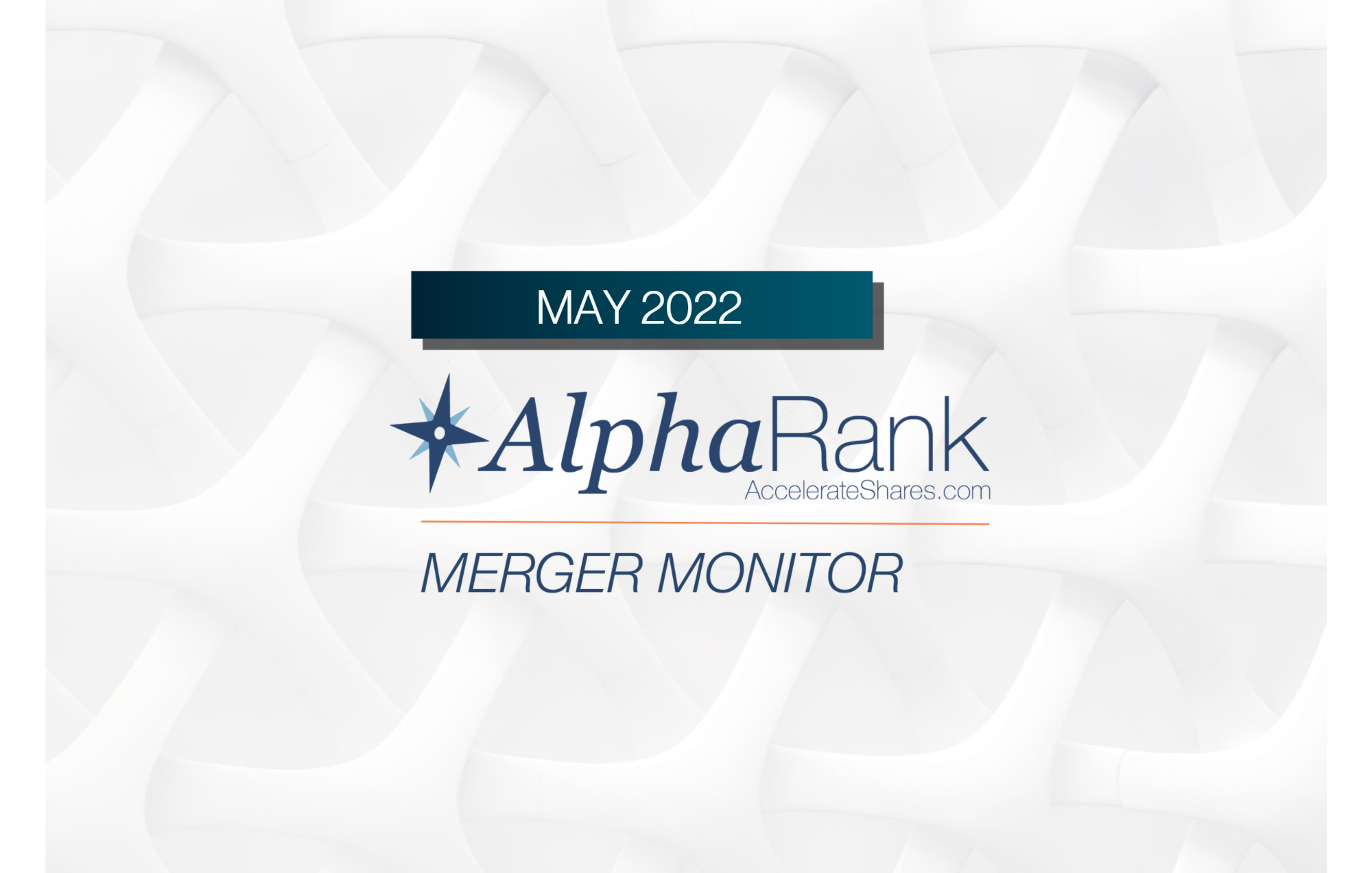
May 30, 2022 – Arbitrageurs can be a fickle bunch, tending to shoot now and aim later at any sign of volatility.
These itchy trigger fingers can create rewarding investment opportunities for enterprising investors.
Looking back to March of 2020, when the Covid-induced bear market threw investors for a loop, markets were extremely volatile as investors sold down equities into their quickest bear market plunge on record.
Merger arbitrageurs were no different, selling down their positions at seemingly any price in a “dash for cash” to reduce risk.
Arbitrage yields surged from a pedestrian 5% in February 2020 to a mouth-watering 23% at their peak on March 19th, 2020.
When merger arbitrage yields rise above 15%, investors should take note given the juicy prospective returns offered.
For example, merger arbitrage spreads widened significantly as yields rose above 15% (the “red zone”) for precisely 16 trading sessions during the depths of the bear market from March 12th, 2020, to April 2nd, 2020.
After that brief panicked period, prices quickly recovered, and yields steadily declined, bottoming at 5% seven months later. Investors who allocated in the red zone of yields above 15% were handsomely rewarded.
From March 2020, the HFRI Merger Arbitrage Index surged 23.3% over the following 12 months, notching one of its best annual performances on record.
 Source: Bloomberg
Source: Bloomberg
This 23.3% annual return, measured from the end of March of 2020, coincided with arbitrage yields falling from 17.0% to 7.8%.
It isn’t very often that investors get a second kick at the can.
Coincidentally, history may be repeating for investors because merger arbitrage spreads recently blew out as market participants became fearful of a potential recession.
Specifically, merger arbitrage yields leapt from 10% last month to more than 15% starting May 9th. Arbitrage yields remained in the “red zone” of more than 15% for 12 trading sessions, just missing the 16-session precedent set in March 2020.
 Source: Accelerate
Source: Accelerate
The widening of merger arbitrage spreads was not caused by any fundamental catalyst, given there has not been a failed M&A deal since February. Equity market and interest rate volatility could be blamed as the culprit, however, that seems lazy. Some market participants accuse overeager antitrust regulators, but that rhetoric has been in the market since last summer.
Given the recent relatively violent move in spreads, combined with the large blocks of attractively priced arbitrage opportunities for sale coming across our desk, it seemed as if a hedge fund was derisking their portfolio aggressively. This degrossing dynamic also occurred in March 2020, however, that period was more daunting given the grim economic outlook caused by the pandemic. Currently, it appears that we may be facing only a run-of-the-mill recession.
The last time spreads blew out like this, there was a clear economic reason, and investors who held their nose and bought the dip were rewarded. We are back up to bat and facing the same pitch just over two years later. However, this time the economic and market conditions are less unnerving.
While arbitrage spreads indicate an economic calamity equivalent to March/April 2020, the fundamentals appear not to justify it.
Particularly, deals continue to get announced and deals continue to close. This month, 21 public mergers were reported in North America worth nearly $130 billion, including Broadcom’s massive $69 billion acquisition of VMWare. This huge tech deal (and the largest software acquisition in history) is the biggest M&A transaction since AbbVie’s $85 billion merger with Allergan two years ago. In addition, this month 14 public M&A deals closed worth $43.4 billion, while no mergers were terminated.
If the merger market is in trouble, strategic and private equity acquirors did not get the memo. As a result, deals continue to get completed, despite the market’s skittishness.
Whether allocators to arbitrage will be rewarded with double-digit returns as they did the last time spreads were this wide is to be seen.
The AlphaRank Merger Monitor below represents Accelerate’s proprietary analytics database on all announced liquid U.S. mergers. The AlphaRank Merger Arbitrage Effective Yield represents the average annualized returns of all outstanding merger arbitrage spreads and is typically viewed as an alternative to fixed income yield.


Each individual merger is assigned a risk rating:
- AA – a merger arbitrage rated ‘AA’ has the highest rating assigned by AlphaRank. The merger has the highest probability of closing.
- A – a merger arbitrage rated ‘A’ differs from the highest-rated mergers only by a small degree. The merger has a very high probability of closing.
- BBB – a merger arbitrage rated ‘BBB’ is of investment-grade and has a high probability of closing.
- BB – a merger arbitrage rated ‘BB’ is somewhat speculative in nature and has a greater than 90% probability of closing.
- B – a merger arbitrage rated ‘B’ is speculative in nature and has a greater than 85% probability of closing.
- CCC – a merger arbitrage rated ‘CCC’ is very speculative in nature. The merger is subject to certain conditions that may not be satisfied.
- NR – a merger-rated NR is trading either at a premium to the implied consideration or a discount to the unaffected price.
The AlphaRank merger analytics database is utilized in running the Accelerate Arbitrage Fund (TSX: ARB), which may have positions in some of the securities mentioned.
* AlphaRank is exclusively produced by Accelerate Financial Technologies Inc. (“Accelerate”). Visit AccelerateShares.com for more information. Disclaimer: This research does not constitute investment, legal or tax advice. Data provided in this research should not be viewed as a recommendation or solicitation of an offer to buy or sell any securities or investment strategies. The information in this research is based on current market conditions and may fluctuate and change in the future. No representation or warranty, expressed or implied, is made on behalf of Accelerate as to the accuracy or completeness of the information contained herein. Accelerate does not accept any liability for any direct, indirect or consequential loss or damage suffered by any person as a result of relying on all or any part of this research and any liability is expressly disclaimed. Accelerate may have positions in securities mentioned. Past performance is not indicative of future results.




